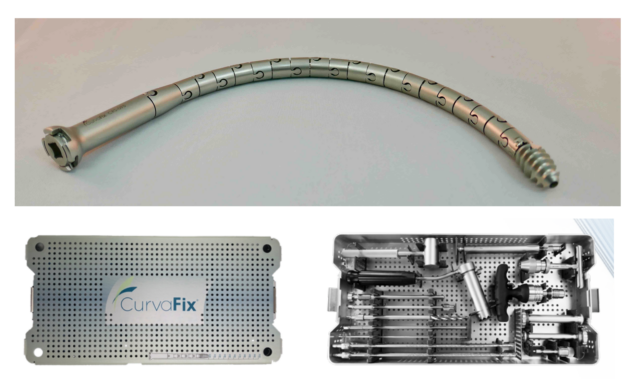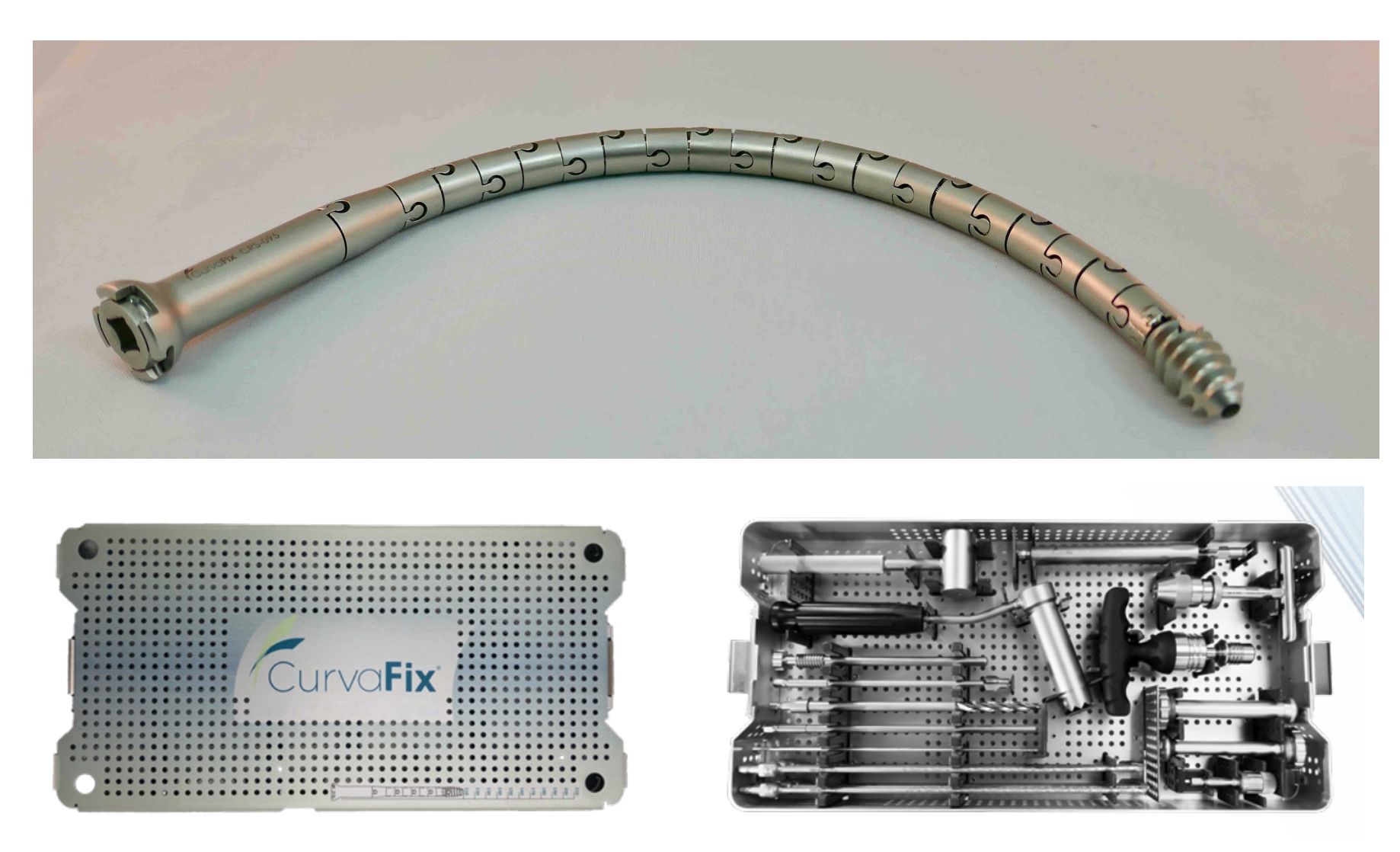[ad_1]

CurvaFix, a Seattle-area startup that makes implants to repair fractures in curved bones, raised $39 million.
The six-year old company’s flagship product is an implant to repair pelvic fractures. The curved implant has interlocking segments that provide flexibility during surgery as it is inserted via a steerable guide wire. After placement, the implant is locked and becomes rigid.
The company’s 7.5 mm device for pelvic fractures received clearance last year from the U.S. Food and Drug Administration, joining a 9.5 mm device developed earlier.
The new funding enables the company to gear up marketing nationwide with the aim of expanding treatment options for people with pelvic fractures due to bone fragility. Such fragility fractures affect about 150,000 people annually in the U.S., about 80% of whom are women, according to the company.

CurvaFix also announced that founder Steve Dimmer stepped down as CEO and transitioned into a strategic advisory role. Mark Foster, previously CEO of medical equipment manufacturing company Trice Medical, replaced Dimmer.
“There are so many untreated and under-treated pelvic fragility fracture patients in the world, and the unique design of the CurvaFix implant is going to allow surgeons to bring a lot of benefit to many patients,” Foster told GeekWire.
The vast majority of elderly people hospitalized for fragility fractures of the pelvis don’t receive surgery, said Dimmer. Many patients languish in bed while recovering, which may contribute to mortality; in one study, 19% of patients died within a year with such conservative treatment. CurvaFix aims to provide a new option.
According to the company, case studies show that CurvaFix procedure may perform better than the straight screws and bone plates currently used for pelvic fractures. By following the natural curve of the pelvis, the device accomplishes stronger fixation and allows patients to move earlier with reduced pain, said Dimmer.
“With CurvaFix, our patients get up and are walking shortly after surgery. This device works very well in fragile bone,” said Dimmer. The implant may also be used to treat pelvic fractures due to trauma.
The idea for CurvaFix originated with inventor Robert Meek, the former division head of orthopedic trauma at the University of British Columbia. More than 200 patients have now received CurvaFix implants, and the startup is seeing “rapid uptake due to the unmet need in the market and the simplicity of the procedure,” said Foster.
CurvaFix is also preparing to publish a study of 25 patients and is separately performing a post-market analysis of treated individuals.
MVN Partners led the Series C funding round, with participation from Sectoral Asset Management and other existing investors. The new funding builds on a $10.7 million Series B round raised in 2020.
[ad_2]
Source link

